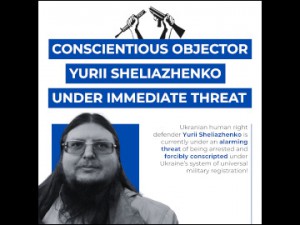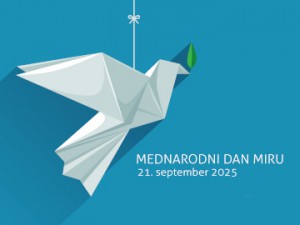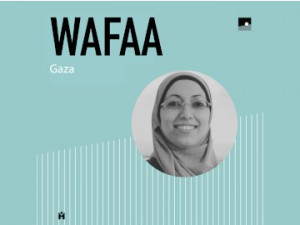Thinking Peace 7: The Necessity of Armament? Between Security, Profit, and the Illusion of Peace
16. 10. 2025 | Politics
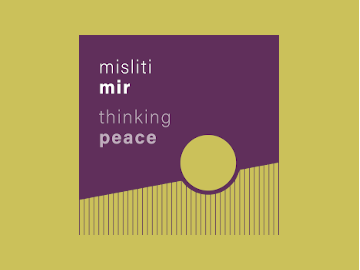
We invite you to the roundtable discussion “The Necessity of Armament? Between Security, Profit, and the Illusion of Peace,” where we will critically examine the increasingly frequent calls for rearming Slovenia, Europe, and the world. We will ask whether there is still room for reflection that could outpace the logic of war, and whether security is ensured through more weapons or by strengthening peace.
- Date: Thursday, 13 November 2025
- Time: 5:00 p.m.
- Venue: Grand Meeting Room of the City Municipality of Ljubljana, Mestni trg 1, Ljubljana
In March 2025, the European Parliament adopted the €800 billion ReArm Europe plan to strengthen the European Union’s defense capabilities. The plan raises several questions: Does it mark the beginning of the formation of a European defense architecture or merely increased dependence on the US and NATO? What will be the economic, social, and political consequences of such large-scale investments in armaments, which will be borne by the member states? Who will benefit most from investments — the military industry or European citizens?
The discussion will explore the economic, political, and philosophical dimensions of Europe’s rearmament: from the role of France as the EU’s only nuclear power, to the relationship between NATO and the EU, and the question of whether more weapons truly mean more security.
Speakers:
- Jelena Juvan, PhD (Department of Defense Studies, Faculty of Social Sciences, University of Ljubljana)
- Peter Klepec, PhD (Institute of Philosophy, ZRC SAZU)
- Nan Tian, PhD (Military Expenditure and Arms Production Programme, Stockholm International Peace Research Institute – SIPRI)
Moderator: Lana Zdravković, PhD (Peace Institute).
The discussion will be held in English. For more information, please contact us at lana.zdravkovic@mirovni-institut.si.
The roundtable is part of the discussion series Thinking Peace, organized by the Peace Institute.
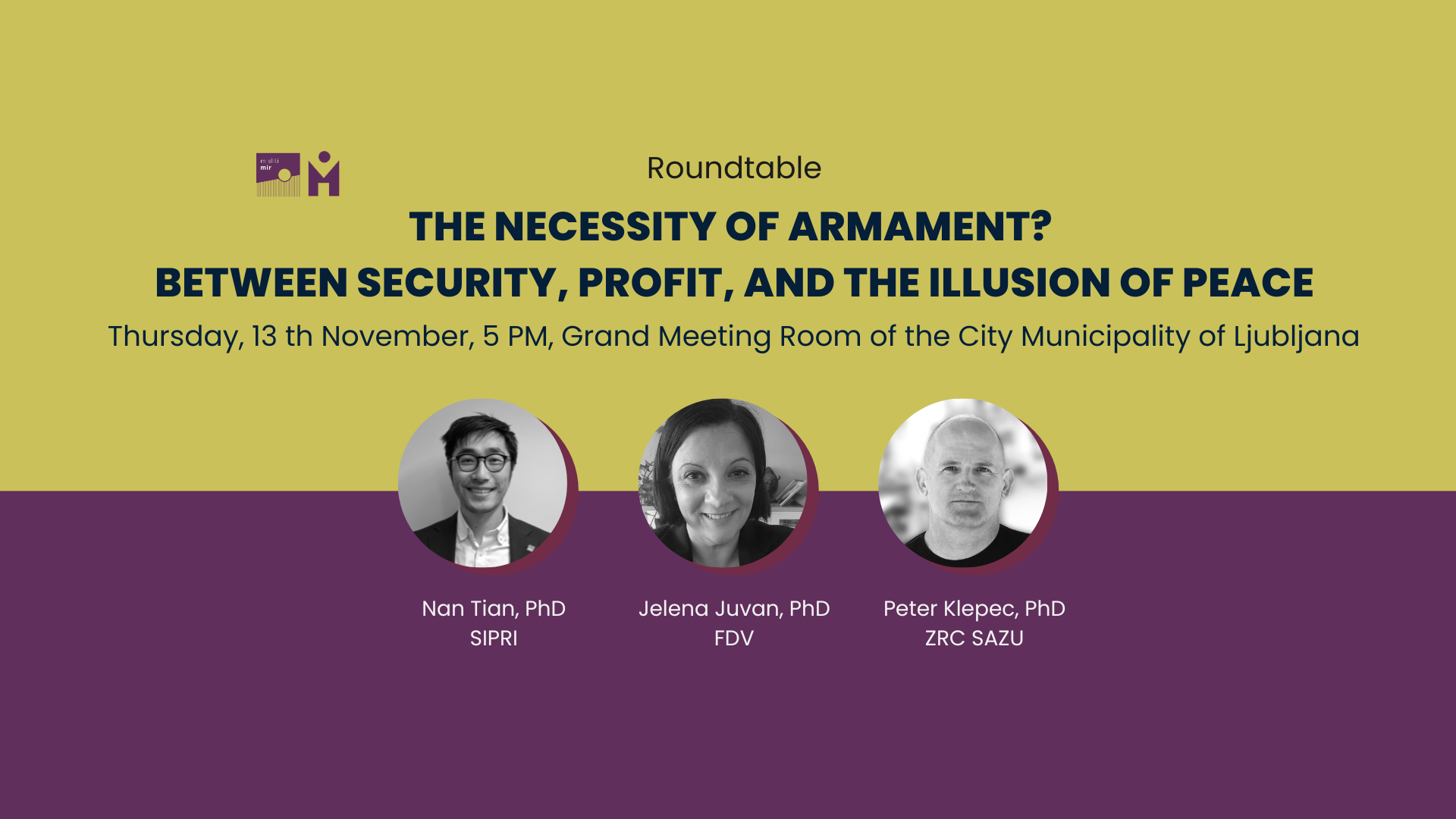
Speakers:
Jelena Juvanis a lecturer, senior research associate, and currently head of the Department of Defence Studies and the Defence Research Center at the Faculty of Social Sciences, University of Ljubljana. Her teaching and research focus on European security, security and defense policy, crisis management, civil-military relations, and cyber and information security. She is Vice-President of the Euro-Atlantic Council of Slovenia, where she promotes Euro-Atlantic values, transatlantic cooperation, and public engagement in security matters. She is the author of the paper “(Un)successfull positioning of a small state in the EU: case of Slovenia and Western Balkans” (2023).
Peter Klepec is a philosopher, senior reasearch fellow, and professor at the Institute of Philosophy of the Research Centre of the Slovenian Academy of Sciences and Arts (ZRC SAZU). His main areas of research include contemporary French philosophy, German classical philosophy, Lacanian psychoanalysis, and critique of ideology. He has published numerous articles on Kant, Hegel, Freud, Lacan, Deleuze, Badiou, Foucault, Rancière, Lyotard, Lefort, Habermas, Negri, Agamben, and Laclau. He is the author of the books: The Emergence of the Subject (2004), Capitalism and Perversion. 1, Profitable Passions (2008), Capitalism and Perversion 2: Matrices of Subjugation (2019). His latest book, Times of Nightmares (2025), has just been published. He is also a member of the editorial board of the journal Problemi and editor-in-chief of the journal Filozofski vestnik.
Nan Tian is the Programme Director of the SIPRI Military Expenditure and Arms Production Programme. He joined SIPRI in October 2016 and has been responsible for monitoring and managing the SIPRI Military Expenditure Database. His research work at SIPRI includes issues related to the trends if global military expenditure, the demand and consequences of military spending and the transparency and budgeting on military-related matters. Nan’s work also involves assessing and analysing trends in the global arms industry. His other research interests include the causes and impact of civil conflict and the inter-links between conflict and military spending.
More about the event content:
In March 2025, the European Parliament endorsed the €800 billion ReArm Europe plan, which allows defense investments to be financed through the budgets of EU member states, a new loan instrument, and the EU budget. The initiative coincides with Donald Trump’s demand that NATO members significantly increase their defense spending. Analysts warn that these massive investments do not represent the creation of a common European defense architecture but rather an increased financial burden on individual states.
What does the EU’s rearmament mean in pragmatic and economic terms? Is it a step toward European military autonomy, or merely compliance with American dictates? Europe imports most of its weapons from the United States and Israel, so further armament would only deepen this dependence, with profits flowing outside the EU. At the forefront lies the dilemma of who truly benefits from these investments — the military industry or European citizens — and whether this is an attempt to revive the economy, particularly Germany’s. The memory of the 1930s serves as a warning that the rise of the arms industry as a response to economic crisis can have disastrous consequences.
Politically, the growth of defense spending will weaken the welfare state — leaving fewer resources for healthcare, education, pensions, culture, and the green transition. Social insecurity strengthens the far right and nationalism, while the pacifist left is marginalized and demonized. Rearmament may trigger new global tensions, and the question remains whether more weapons really mean more security.
Philosophically, the sense of the necessity of armament is being reinforced, while every call for reflection is branded as betrayal. Despite the awareness that peace is better than war, political theories that view humans as inherently conflictual prevail.
Europe, which once allowed wars in the Balkans, now faces war on its own doorstep. The question is whether there is still space for reflection that could outpace the logic of war.

